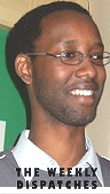Returning to themes of health care reform- and governance reform as a whole- one interesting aspect of the health care debate in the United States was the way opinion polls were thrown around like confetti at a wedding.


Returning to themes of health care reform- and governance reform as a whole- one interesting aspect of the health care debate in the United States was the way opinion polls were thrown around like confetti at a wedding.
Both sides were quick to use different opinion polls for their own ends and there were enough of them to give comfort to just about anybody wherever they were situated on the spectrum of the debate.
However on balance, opinion polls suggested that most Americans were lukewarm on the health care reform bill.
Much of the opposition might have come from the fact that Republicans had spread a lot of misinformation about it (‘death panels’ being one obvious one) but despite that, opponents of the bill could argue that they had the will of the people at heart.
Supporters of the bill could argue that governing is a lot more complex than just acting on the latest opinion poll.
Both sides had a point, although those who use opinion polls to press their arguments would have to be prepared to do so all the time, even when the weight of public opinion is not on their side.
The peculiar nature of opinion polls was brought home to me by an American political writer who noted that in reality, the fact that there was substantial opposition to the health care bill was merely a very temporary reflection of the situation.
Once health care reform was passed, opinion polls changed to reflect this and the tables were turned. In other words, the percentage of people favorable to the bill increased once the bill was passed. In passing, it gained the kind of legitimacy that it did not have before.
And that’s one of the things I’ve always found so fascinating about opinion polls- how fluid they are, and how complex an endeavor it is to create them.
In a world of randomness, opinion polls give us a glorious example of mankind’s desire to make patterns out of chaos. It is an admirable undertaking, despite the fact that such polls are often turned into political footballs.
But opinion polls face a few problems as accurate gauges of conveying what people think. For one, they are unlikely to reveal the information gap between decision-makers and the public.
The random sample of the population doesn’t reveal how much people know, and prejudice is judged as highly as objectivity.
This becomes an obvious problem once politicians try to play ‘follow the polls’ politics. Infact if one was being uncharitable, it could be said that one thing opinion polls truly gauge is how little people know about what is going on.
And this rarely gives politicians an incentive to govern better.
Furthermore, as I noted earlier, opinion polls can be very temporary constructs that can change for the simplest of reasons.
With the health care bill, the numbers shifted dramatically after it passed and it seemed like the United States had been behind it all along. Yet somehow the fact that the bill was passed was deemed a good enough reason for many to change their minds.
If that is the way a certain percentage of the public make their decisions, those in power could see unfriendly opinion polls as a minor inconvenience.
As long as they can handle all the behind-the-scenes political maneuvering to get an unpopular bit of legislation passed, then they will feel that the public will fall in line soon after.
Of course opinion polls can never be a true reflection of what society thinks. They can never reveal any underlying issues that motivate people’s ideas or the psychological quirks that would provide helpful commentary.
Despite those flaws, I think it is a very interesting insight into how governance and public will interact, and it forces us to confront what public opinion really means.
minega_isibo@yahoo.co.uk
Minega Isibo is a lawyer


